Bill to decriminalize sex work heads to Judicial Committee | 22 News WWLP.com
2022 Bills That Endanger Sex Workers
January 1, 2022
Although legislators are increasingly recognizing the harms of criminalizing sex work, as this year’s legislative session opens, lawmakers continue to propose bills that endanger the rights, health, and safety of sex workers across the country. These laws increase criminal penalties, present new criminal categories around commercial sex, increase surveillance, or propose to decriminalize the sale, but not the purchase of sex work. Below is an explanation of several pieces of legislation which, if passed, would have a significant impact on sex workers’ ability to survive.
There are currently three different state bills that propose to decriminalize the sale of sex but maintain penalties for purchasing sexual services. S940/H1761 in Massachusetts, S6040/A7069 in New York, and S771 in Rhode Island propose this model known as the “Entrapment Model,” the “End Demand Model,” or the “Swedish Model” of criminalization. The bill introduced in Rhode Island is slightly different in that it does not remove all criminal penalties from prostitution but rather makes it a civil offense with fines attached.1 This mode of criminalization promotes the belief that sex work is inherently exploitative, painting all sex workers as victims and all clients and third parties as abusers. Not only is this a false and dangerous assumption, but the policy is ineffective. By focusing on demand, the model aims to abolish commercial sex altogether. While it may seem appealing to those who object to prostitution, in reality, the entrapment model does nothing to impact demand. Where and when it has been implemented, sex workers experience an increased risk of violence and assault and heightened stigmatization and unease.
In Wisconsin, SB836 is a bill proposed to regulate adult-entertainment establishments. In effect, the bill prevents trafficking survivors and sex workers from working at or owning such establishments by prohibiting people who have been convicted of certain offenses (including prostitution-related crimes) from owning or working at strip clubs. The bill also prohibits adult-entertainment establishments from having employees who have been the victim of certain trafficking offenses. It requires establishments to post a human trafficking poster created by the Department of Justice in a prominent location for employees to view. The bill also mandates that these businesses furnish a list of their employees, operators, and owners to local law enforcement officials upon request. This law not only violates the privacy of employees but it infringes upon the rights of survivors of trafficking and sex workers and their ability to earn a living.
AB139/SB26 was also proposed in Wisconsin. The bill is a penalty increase for individuals convicted of patronizing or soliciting a prostitute, pandering, or keeping a place of prostitution. Under the proposed law, a $5,000 surcharge would be imposed to be used for treatment and services for sex-trafficking victims and for investigative operations relating to internet crimes against children. Most state crime fees in Wisconsin are $67 per count for misdemeanors and $92 per count for felonies. While the creation of resources for survivors of sexual exploitation seems positive, the method of collecting these funds creates complications. The bill imposes a disproportionately high charge on misdemeanor crimes which would have a deleterious impact on the lives of indigent offenders, putting many in debt to the court system. It is also clear from the language of the bill that it conflates consensual adult sex work and human trafficking, meaning that many of the funds created to service the needs of human trafficking survivors might in reality be used to create mandatory programming for sex workers who have been convicted of prostitution. This not only wastes resources, but the criminalization of poverty in the United States perpetuates cycles of criminalization and victimization.
Another bill that increases penalties for crimes related to commercial sex was introduced in Florida. HB521/S760 provides criminal penalties for receiving value from human trafficking, using labor or services, or commercial sexual activity of an adult. The law also prohibits facilitating or enabling prostitution, lewdness, or facilitating or enabling any person to remain in a location for such purposes and increases criminal penalties for specified prohibited acts relating to prostitution, lewdness, or assignation. While on its face, the legislation is an anti-trafficking bill, in reality, its motives are prohibitionist. The law aims to discourage prostitution by increasing the criminal penalties for many common third-party activities used by sex workers to make their work safer, thus putting them at risk.
Many of these bills are proposed with the intention of helping survivors of human trafficking escape exploitation and rebuild their lives. However, because of the deep-rooted conflation between human trafficking in commercial sex and consensual adult sex work, these laws create unintended harm for both sex workers and survivors. If you are a resident of any of these states and want to protect the rights of sex workers and related communities, please reach out to your representative and ask them to oppose these bills.
________________________
1 One positive attribute of the Rhode Island bill is that it repeals the authority to detain a defendant in the event they test positive for venereal disease.
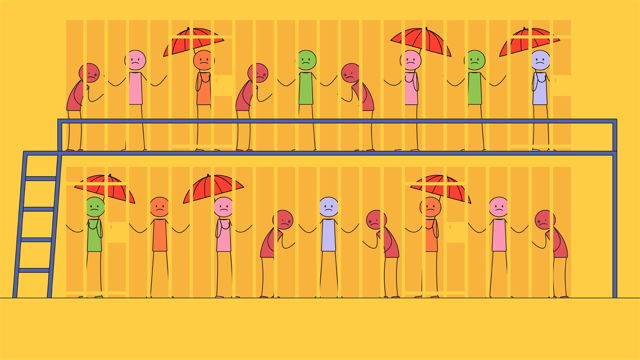
(DSW, 2021)
DSW Newsletter #32 (January 2022)
State Bills to Watch in 2022

January Is Human Trafficking Awareness Month
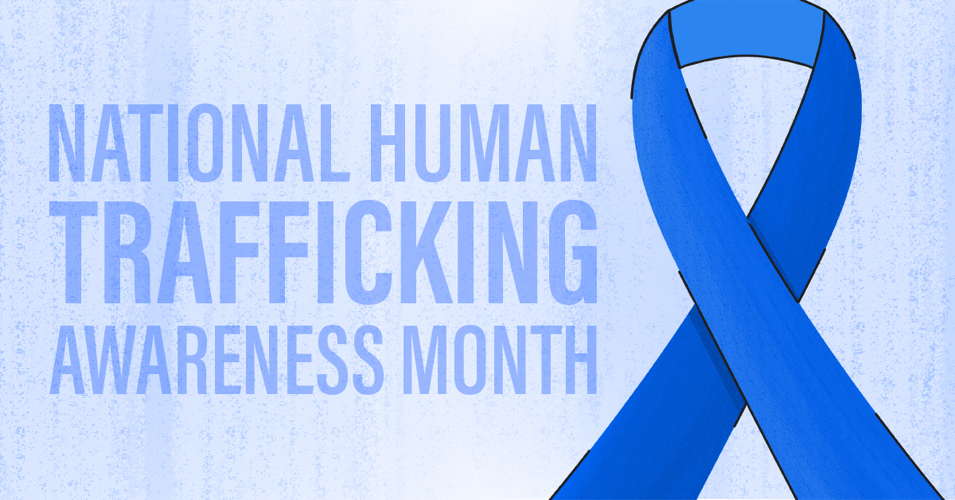
Federal Courts Rule, Title IX Protects Sex Workers from Discrimination
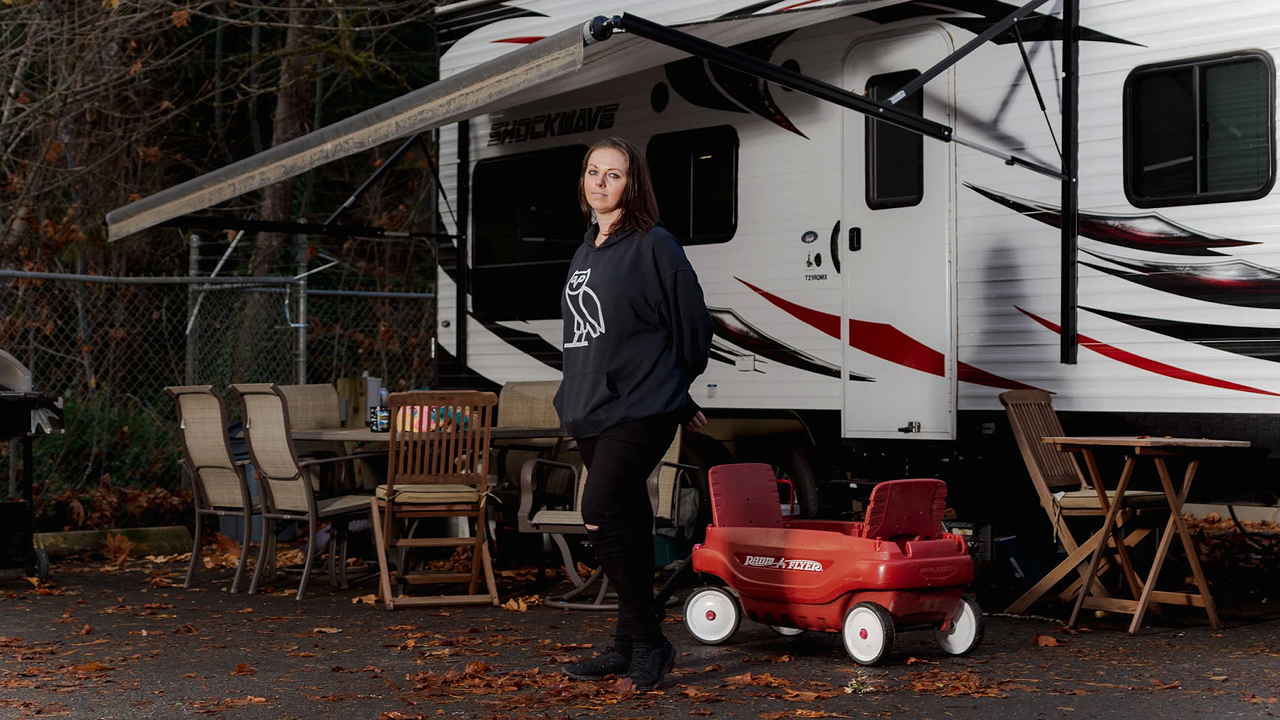
2022 Bills That Endanger Sex Workers

NY District Attorney Bragg Includes Landmark Sex Work Reform in Policy Statement
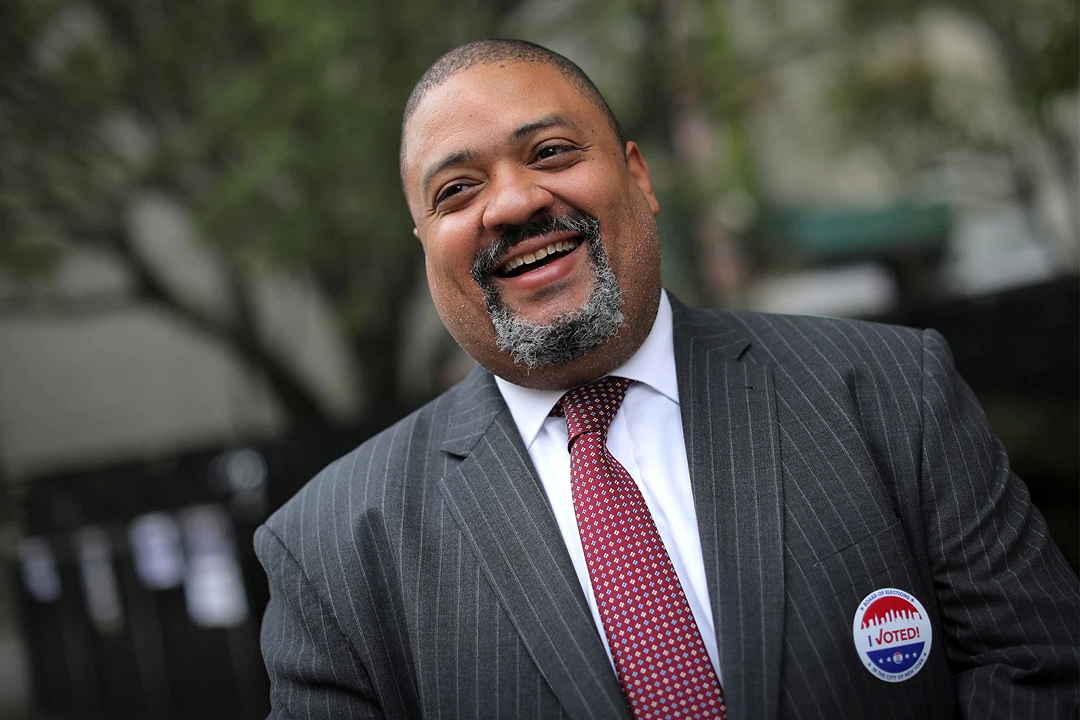
The Legacy of Gilgo Beach: Protect Sex Workers
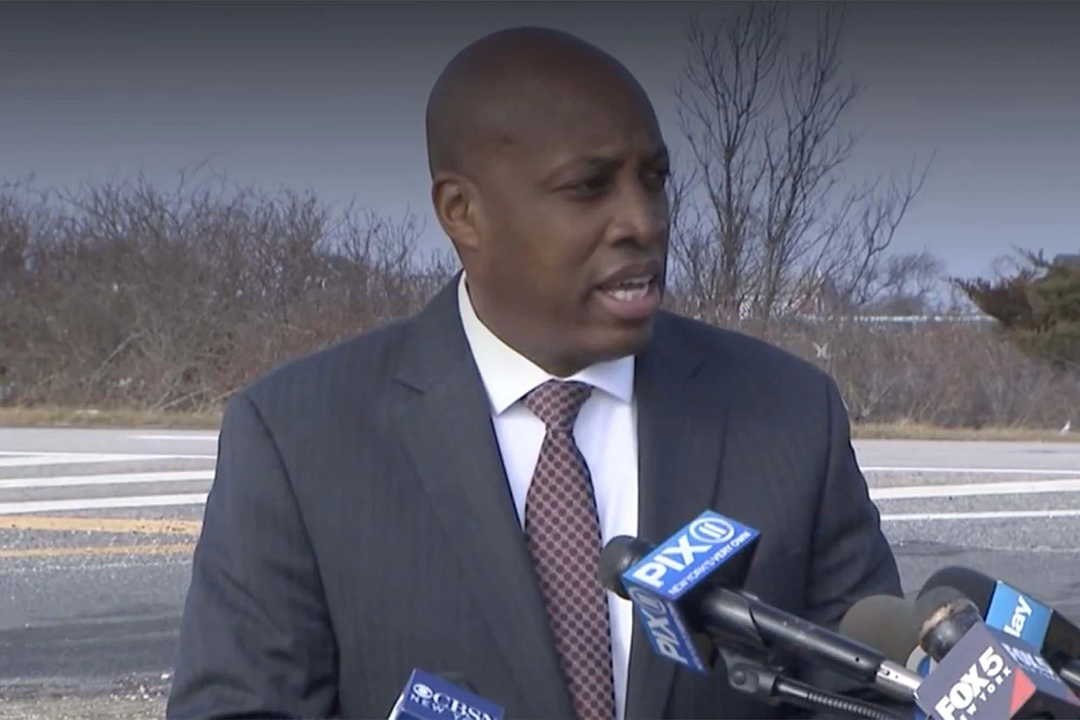
DSW Newsletter Archive
State Bills to Watch in 2022
January 1, 2022
Bills to decriminalize sex work are being considered in New York (S3075/A849), Massachusetts (H1867), Vermont (H630), and Missouri (H2388). Several other pieces of legislation to improve the health, safety, and human rights of sex workers and related communities have been introduced around the country.
Massachusetts also saw the introduction of S947, proposed by Senator Sonia Chang-Diaz. The bill would support survivors of trafficking and abuse by increasing eligibility for expungement and the sealing of records. If passed, survivors would be eligible for expungement for all crimes they were compelled to commit as a result of their exploitation. This bill is similar to the Survivors of Trafficking Attaining Relief Together (START) Act, enacted in New York last year. The New Jersey Senate also recently passed S3433 which would similarly provide a process to vacate and expunge the convictions of human trafficking survivors. The governor signed the bill into law this month.
New York and Rhode Island have both proposed Good Samaritan Bills [also known as immunity]. These laws are critical to the health and safety of sex workers and broader communities. Because of criminalization, sex workers often do not report crimes committed against them for fear of arrest and prosecution. Good Samaritan laws, as proposed, provide limited immunity from prosecution for individuals engaged in prostitution who are victims of or witnesses to a crime, allowing them to come forward without risking prosecution.
Rhode Island has two other important bills that have been introduced this session to protect sex workers’ rights. The first, H6049/S249, criminalizes custodial sexual assault of defendants in the custody of a peace officer. An offense under this law would be subject to imprisonment for up to three years. There is a pattern of sexual abuse of sex workers at the hands of law enforcement across the United States. Vice divisions have used criminalization to coerce sexual favors from sex workers. A 2019 Johns Hopkins University study also found that abusive police interactions with sex workers increase the likelihood of violence at the hands of clients. These findings are reflective of the general stigmatization directed at sex workers, encouraging tacit acceptance, and sometimes even perpetuation, of violence against them by law enforcement.
H5464, also introduced in Rhode Island, would establish non-discrimination standards for healthcare providers in the state. The bill mandates that any patient seeking services “shall not be denied appropriate care on the basis of age, sex, gender identity, sexual orientation, race, color, marital status, familial status, disability, religion, national origin, source of income, source of payment, or profession.” Sex workers are commonly subjected to discrimination and stigma when seeking healthcare which results in inadequate care and nondisclosure. Discrimination may stop sex workers from seeking services at all. If passed, this bill will create important protections for sex workers and other marginalized communities when accessing life-saving care.
In New York, A8281 was recently introduced in the State Assembly to remove unauthorized or unlicensed practice of massage therapy, and aiding or abetting unauthorized or unlicensed practice of massage therapy, from the criminal statute of unauthorized practice. This legislation is intended to put an end to the routine harassment and abuse of the largely immigrant population working in massage parlors in certain counties by NYPD’s vice division. Vice routinely conducts stings at massage parlors in certain neighborhoods under the guise of “rescuing” women from trafficking rings. Undercover officers request sex acts at the end of an appointment. If the masseuse agrees, they are arrested for prostitution, and if they say no, the officer can still charge them with unlicensed massage under the Unauthorized Practice of a Profession statute (ED 6512). Immigrant women of Asian descent have been disproportionately targeted for these arrests. Between 2015 and 2019, 93.3% of unlicensed practice of a profession arrests were of Asian-identified individuals, increasing by 2700%. 91 percent of the 2016 cases were against non-citizens.
The Gender Identity Respect, Dignity, and Safety Act (S6677/A7001), also introduced in New York, would amend the state’s corrections law. The bill “requires that incarcerated people in state and local correctional facilities who have a gender identity different from the person's assigned sex at birth be addressed and have access to commissary items, clothing, and other materials that are consistent with the person's gender identity.” It also mandates that individuals be placed in correctional facilities with people of the gender that they most closely align with, with the freedom to change their placement. This bill creates essential protections for transgender, non-conforming, and non-binary (TGNC/NB) community members. When TGNC/NB are placed in the wrong prison or jail, many are subjected to violence, harassment, psychological distress, or blocked from medical care.
DSW will continue monitoring and reporting on bills, such as these, which are important to the rights of sex workers and related communities. We urge readers who are residents of states with active legislation to reach out to their representatives and ask them to support these bills.
Visit https://decriminalizesex.work/advocacy/take-action-your-state/ to send letters in support of decriminalization to your legislators.

(SWARM Collective, 2013)
DSW Newsletter #32 (January 2022)
State Bills to Watch in 2022

January Is Human Trafficking Awareness Month

Federal Courts Rule, Title IX Protects Sex Workers from Discrimination

2022 Bills That Endanger Sex Workers

NY District Attorney Bragg Includes Landmark Sex Work Reform in Policy Statement

The Legacy of Gilgo Beach: Protect Sex Workers

DSW Newsletter Archive
MA Democratic Senate Candidates Are Listening to Sex Workers
August 4, 2020
U.S. Sen. Edward Markey and U.S. Rep. Joseph Kennedy III, rivals in the MA Democratic Senate primary, both voiced their support for the full decriminalization of sex work on a criminal justice panel. In this hotly contested race, the candidates have been recognized as having relatively similar policies. Kennedy voiced his belief that “the time has come to decriminalize and legalize sex work.” He also expressed a desire to work with advocates to “ensure the result isn’t a system that makes it easier for sex workers to be exploited.” Markey was quoted as saying, “It’s our responsibility to listen to sex workers and advocates to work together on how to move forward,” in a less explicit, but still encouraging commitment to decriminalization.
Along with fellow advocates and allies, DSW has been working tirelessly to push full decriminalization into national policy discussions. Last year, our organization launched a campaign to educate presidential primary candidates on decriminalization and why it is essential to our nation’s health and safety. We’ve consulted with national and local campaigns crafting their policy positions to center sex workers and their safety.
We know that where and when sex work is decriminalized, violence against women, sexual assault, and STD infections decrease. We know that when sex workers can safely advertise online, using mainstream platforms, female homicide decreases. In New Zealand, where sex work has been entirely decriminalized, decriminalization helps combat trafficking. Still, politicians can resist supporting the full decriminalization of adult consensual sex work publicly.
We are beyond encouraged to see rival candidates endorsing a policy to support sex worker rights and community health and safety. Both Kennedy and Markey have also exhibited a dedication to defending the rights of gig workers across the board, extending extra coronavirus relief payments for workers. Candidates who support sex worker rights, support human rights.

U.S. Rep. Joseph Kennedy III (left) and U.S. Sen. Edward Markey (right) exchange a socially-distanced elbow bump following a debate on August 8, 2020. (Photo: Danny McDonald/Boston Globe)
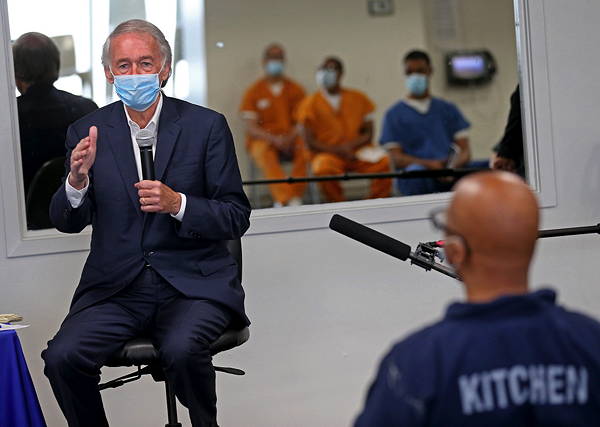
Both candidates have been outspoken about their support for comprehensive criminal justice reform, giving speeches inside prisons to reach impacted communities. Here, U.S. Sen. Edward Markey talks to inmates on July 7. (Photo: Matt Stone/Boston Herald)
DSW Newsletter #17 (August 2020)
Hero(es) of the Month: TS Candii, SX Noir, and Gizelle Marie Organize the Largest Sex Worker March in U.S. History
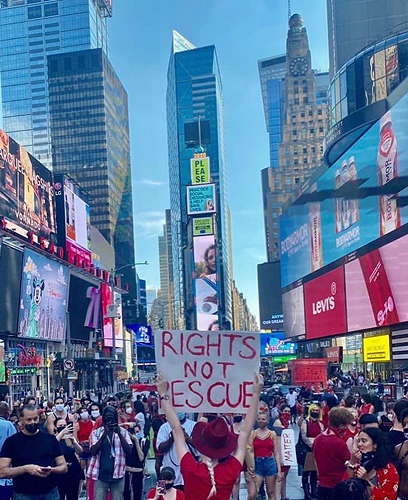
MA Democratic Senate Candidates Are Listening to Sex Workers

NY Senate Fails Trafficking Survivors, Again
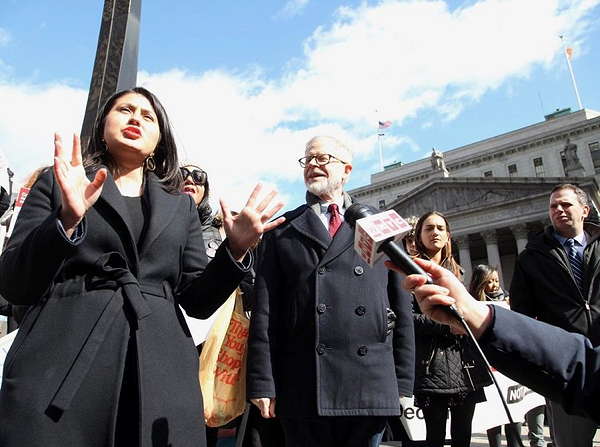
DSW’s Kaytlin Bailey on Sex Work and Police Reform
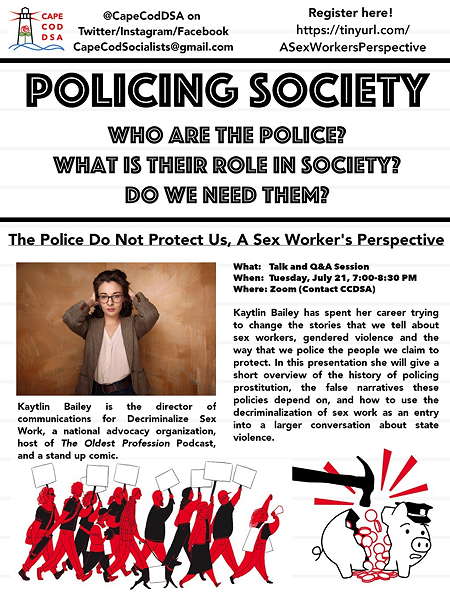
DSW Takes Action Against EARN IT

The Stripper Strike Goes National
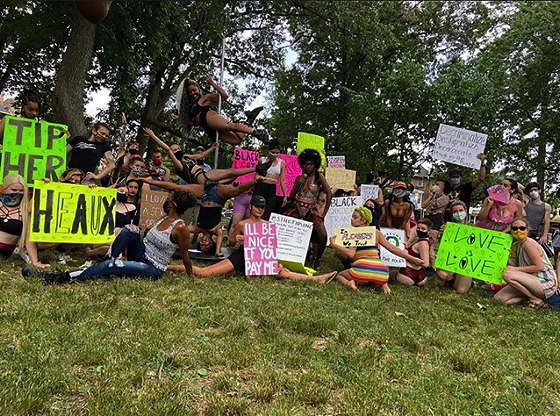

Hero(es) of the Month: TS Candii,...

MA Democratic Senate Candidates Are Listening...

NY Senate Fails Trafficking Survivors, Again

DSW’s Kaytlin Bailey on Sex Work...

DSW Takes Action Against EARN IT

The Stripper Strike Goes National
